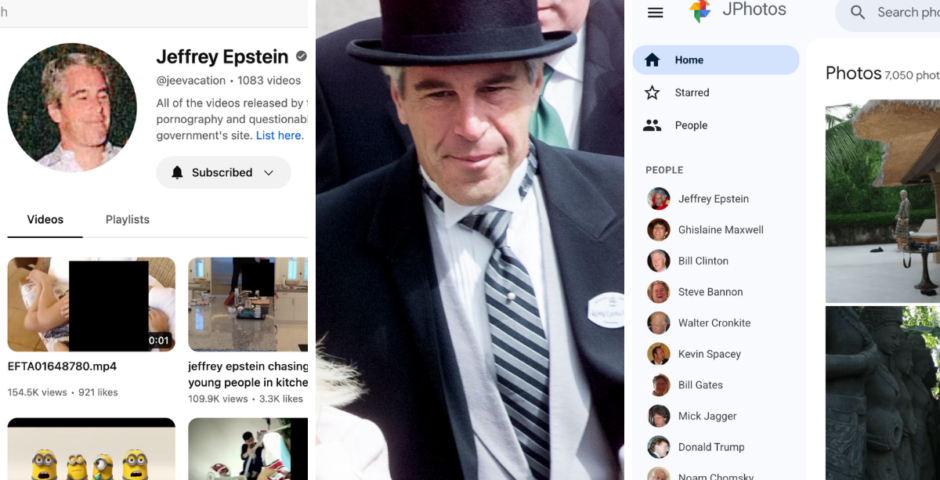
Here’s what I’ve learnt from being a chronically ill student at Exeter Uni
‘Some people get hit by Freshers’ Flu worse than others’ – my housemate, apologetically, to me x
If you asked me five years ago what my dream was, I would have said going to university. All those years later, I’m rapidly progressing through my final year at Exeter studying for a BA in English. But what changed? Most obviously for me, I am healthy enough (mostly) to attend university in the first place and that is a privilege that I never thought would be possible. So, how can I, and other chronically ill people, navigate the crazy world of Exeter University and make it a time to cherish forever?
I was diagnosed with Cystic Fibrosis (CF) over 20 years ago, at three months old. CF is a multi-organ disease and is one of the UK’s most common life-threatening inherited diseases. For me, CF has wrecked my pancreas (literally every part of it – hello diabetes), my lungs and my digestive system: As of 2017, the 132 people with CF who died had a median age of 31. Anyways, enough of the clinical and slightly depressing details – you get me, it’s a pretty big deal.

When Covid hit, I was classed as clinically extremely vulnerable, and it meant that I had to isolate for a lot longer than everyone else. My A-level years were almost entirely conducted in my bedroom, where the only company I had was my cats and my friends waving at me through a window. But, all of a sudden, a new drug, Kaftrio, appeared and it changed my life in ways I could have never imagined. So much so, that my life journey was about to get a whole lot more exciting – enter Exeter.
Uni is hard, ok, it is

I came to Exeter as an innocent, slightly naïve fresher in 2021. The excitement of moving out, living independently and getting to study my favourite subject was a whirlwind, but I can honestly say I had the most amazing first year possible. My condition managed to remain stable across the year, so I got to experience uni life to the fullest. I was going out all the time, meeting new people, trying new things and diving head first into my course.
But then, second year winter hit: Trying to navigate three deadlines within the same week while undergoing intensive treatment for my concoction of lung infections was one of the most draining periods of my life. I often really struggled with FOMO (no more TP Fridays or Cavern Saturdays for me), and worried about burdening the people I cared about. I shouldn’t have worried about the last bit though (see my last point). But the huge life change that is going to uni can definitely catch you by surprise at times, and it’s so important to recognise what an amazing job you are doing at being a full time student!
Maintaining healthy routines can be a struggle

On a similar note, fostering healthy and sustainable habits is incredibly important, but often quite hard to maintain. Creating realistic routines has really helped me navigate university as someone with a chronic, degenerative illness. In my case, exercise is one of the most important things that I can do (aside from taking my meds) to protect my health. At the same time, it’s also really hard. While first year Emily was blessed with on-campus living, I have now progressed to relying on my delightful e-bike (if you see me riding to uni, no you didn’t x) to get me to campus and town with ease.
If, however, my health is not on my side, that’s what my ILP is for. An Individual Learning Plan is created by both yourself and a wellbeing officer at Exeter to try and make your uni experience that much easier. ILPs can include exam mitigation, rest breaks, absence allowance and more. They are super flexible so I have found that having this in place has really helped me to maximise my learning experience alongside treating my CF.
Some people are just really fit

I should have prepared myself better for the monstrosity that are the climbs of Cardiac Hill, Forum Hill and the East Park stairs (who decided the girl with the lung disease should live in the very top of East Park in a block with no lift?) Getting around the city, at times, has been really hard for me.
I think one of the biggest things that I struggled with coming to Exeter was just how fit and active some people were – and how as much as I wanted it to, I couldn’t be like that. Now, I just embrace it – proved by my ultra fit partner who is cycling from Exeter to London in one go for Movember (cheeky EUCC plug).
A huge achievement for me has been running my first ever 5k. Although I am a certified slow-runner girlie, pushing myself to get active in whatever way I can has made a huge difference to my mental and physical health. But beware, try and find a flat route. Alternatively, if your illness or disability means that you bleed green from the crowds, supporting your fellow Exeter students is never a bad idea.
You don’t have to go clubbing

As I said earlier, my first year was filled with the typical party girl experience. I wouldn’t change it, but I also accept that I probably should have looked after my health a little more. As I sit here writing this, I am undergoing emergency intravenous antibiotics for a chest infection, and the idea of going anywhere but my bed is terrifying. While I am ok with this now, the prospect of missing out on the crazy antics of my best friends downing expensive Venoms in TP made me feel really rubbish, and that is totally understandable. While clubbing or excessive drinking may not be the best method to attack your chronic illness (even if it makes me feel like I can run a marathon), Exeter as a city has so many wonderful places to explore and socialise.
Cystic fibrosis, primarily as a lung disease, reacts really well to salty air. And what does Exeter have close by? The beach! Getting the fresh, salty air in my lungs is an amazing form of physical therapy for me, and is one of my favourite ways to spend time with my family and friends. Special mentions also go out to literally any cute coffee shop or vintage store in the city. While it may feel like going out-out is a vital aspect of uni life, there are so many other ways to make life long, perhaps slightly less messy, memories.
Support is out there

Aside from managing a chronic condition, university can be a really difficult adjustment – homesickness, academic pressure and housing can all mount up and cause a lot of anxiety for students. The staff at Exeter have been a great source of support for me – from wellbeing services for creating my ILP, to academic tutor and my seminar leaders in being so understanding of my last-minute seminar bails (I promise I wasn’t clubbing too hard the night before my 8:30am, I just can’t breathe).
If you can relate the feeling of being overwhelmed at university from managing your course, social life and chronic condition – please reach out to wellbeing services, and let your course leaders know. Help is there and it will make your life that much bit easier, I promise. Wellbeing and accessibility services can be found at Reed Hall, Reed Mews and the Forum, or simply click here for more information.
Friends can heal all wounds

My friends and my partner have, without a doubt, made my time at university the most incredible period in my life. I am so grateful to have a bunch of supportive, kind and compassionate people to rely on. From going to the pharmacy for me to collect my medication, to creating gift baskets – Exeter has provided me with friends for life. If you are struggling to balance your chronic illness and university, the support of those around you is an invaluable tool, and can provide you with a laugh when you need it most.
When I first arrived at Exeter, my CF was in a pretty positive place, and I was so excited to see what the next three years would have in store. As a write this, I am less physically healthy, but I now have the most amazing support network, study a course that I love, and live in a beautiful city. Coming to university has given me the tools to manage my condition independently, and also the confidence to ask for help when I need it, because I know someone will always come to the rescue when it’s needed.

















